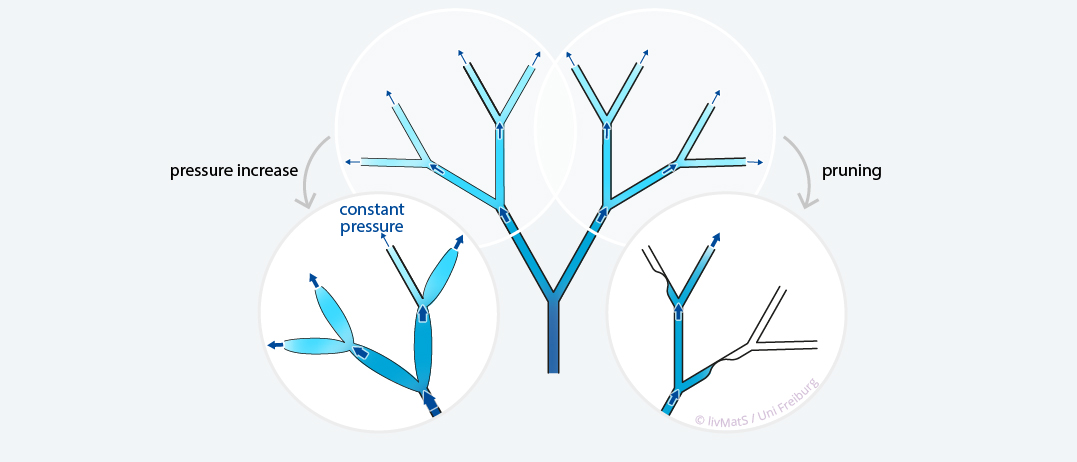Project
Embedded (micro)-fluidic networks in soft materials systems: A route to adaptive processes, self-regulation and self-repair
The ability of soft materials to create dynamic elastic deformations on the micro- and mesoscale is of broad interest to a variety of new applications such as adaptable optics, flexible electronics and soft robotics. Aim of this project is the development of soft materials systems with embedded (micro)-fluidic networks that are capable of feedback, regulation, and adaption processes. They are inspired by tubular networks in nature, such as blood vessels in animals and conductive vessels in plants.
Energy and information flow within these materials systems can be directed or dispersed, depending on the kind and strength of the external stimuli. This can be achieved through the embedded network’s architecture and pressure-dependent local elastic properties. To increase functionality and feedback behavior of the materials systems, the networks will be actively pruned. A multifaceted behavior in response to internal and external stimuli will be achieved by utilizing a combination of fluid dynamics, capillary and osmotic forces, and the elasticity of the surrounding material. Soft materials systems with embedded fluidic networks provide an extraordinarily comprehensive platform for the transport of materials, energy and information, as well as for initiating adaptive processes, self-regulation and self-repair within materials systems.

Contact
Dr. Thomas Pfohl
Principal Investigators
Prof. Dr. Chris Eberl, Prof. Dr. Jürgen Rühe
Responsible Investigators
Dr. Thomas Pfohl
Doctoral researchers
Efstathios Mitropoulos
Associated researchers
Claas-Hendrik Stamp